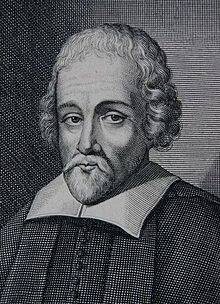Faustus Socinus, also known as Faust Paolo Sozzini and sometimes as Faust Socyn was born in Siena in Tuscany on this day, the 5th of December in 1539.
He was educated at home and quickly fell under the influence of his uncle Celso, who encouraged the boy’s searching intellect, as well as another of his uncles, Lelio a full on Renaissance humanist, intellectual, and increasingly anti-Trinitarian thinker.
When he inherited a small fortune Faustus began more formal studies at the Academia deli Intronati, There he showed talent in law as well as a poet. By the beginning of 1561 he fell under suspicion of harboring Lutheran views, and found it wise to move on.
By the next year he was writing against the divinity of Christ and the idea of an immortal soul. He returned to Italy and for a period of time kept his developing views to himself while working as a lawyer. Faustus then settled in Basel where he threw himself into a serious study of the Bible. From there he found it wise to move to Transylvania, which for a brief glorious moment was the center of intellectual and spiritual freedom in Europe. There he consulted with the anti-trinitarian theologian Francis David. They fell out over the use of traditional theological language being applied to the new radical unitarianism.
And from there Faustus moved to Poland. And here he fell in with the Polish Brethren. Unitarian Universalist minister and historian Mark Worth tells us the Brethren, or more formally, the Minor Reformed Church of Poland, was “a Unitarian denomination was established. Its leading theologian was Faustus Socinus… so they are known to history as the Socinians.
“The Socinians rejected the Doctrine of the Trinity and the divinity of Jesus, rejected the doctrine of Hell, advocated for separation of church and state, and rejected military service.” In effect they became the first Christian association, after the Ebionites in Antiquity, to believe in a naturalistic Jesus.
With this many doors would be thrown open.
The church lasted near a hundred years, until, as Mark tells us, “In 1658 the Socianians were given the choice of converting to Catholicism, going into exile, or being executed.”
Among the more important things about the Polish Brethren was the press they set up at Rakow, which spread the Socianian teachings throughout Europe, and which many years later would be critical to the formation of English speaking Unitarianism.













